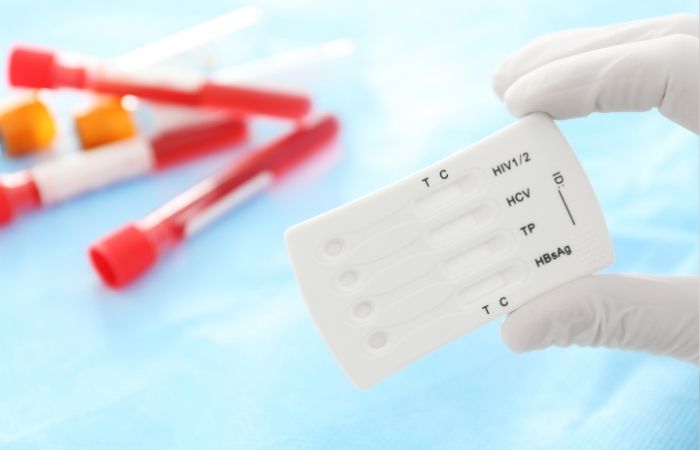Quick Answer: Delaying STD testing due to machismo and stigma increases the risk of undiagnosed infections, long-term health damage, and transmission to partners. Confidential, quick testing, at home or in clinics, can prevent these outcomes.
When Silence Starts with Symptoms
Marcus, 27, remembers the first sign clearly: a faint burning when he peed after a weekend trip with friends. “I thought it was the beer or the swimming pool,” he said, laughing at his own denial. He ignored it for two months, until the discharge started. By then, the gonorrhea had spread to his partner, who needed antibiotics too.
Men often dismiss the early warning signs of STDs, burning urination, unexpected discharge, sores, rashes, especially when they’re mild or intermittent. This “wait it out” mentality is deeply tied to cultural scripts that say discomfort is weakness. According to the CDC, many infections like chlamydia or gonorrhea can remain asymptomatic in men for weeks or months, quietly causing inflammation, infertility risk, or systemic spread.
It’s not just about ignorance. The real danger is the trained reflex to hide vulnerability, a reflex that turns early, treatable conditions into chronic or severe illnesses.

Men are also reading: Why Monogamy Isn’t a Foolproof Shield Against STDs
Machismo: The Invisible Barrier
In cultures where machismo is strong, men are often seen as only needing health care in emergencies. The main idea? You are strong if you don't need much help. If you're a macho man, you don't have much room to talk about penile sores or ask for a swab test.
Studies that have been peer-reviewed, like Sileo et al.'s 2018 review, show that masculine norms always lead to lower rates of HIV and STI testing. Men say they are afraid of looking weak, being seen as promiscuous, or being judged morally by their providers. This is especially true for Latino, Black, and rural men, where being a man is very important to their community identity.
Many men self-diagnose by Googling "itchy balls no rash" or "burning after sex" late at night instead of making an appointment at a clinic, even when they have symptoms. Sadly, you can't use online symptom checks instead of real exams or lab tests.
The Myth of the Symptom-Free Pass
One of the most dangerous myths keeping men from testing is the belief that no symptoms means no problem. Research published in the journal BMC Infectious Diseases shows that a large proportion of male STD carriers never experience noticeable symptoms, but can still transmit infections like HIV, syphilis, or herpes to partners.
This “I feel fine” logic is a comfort blanket. It allows men to sidestep difficult conversations with partners, avoid confronting their own risk behaviors, and bypass the discomfort of a clinical setting. But infections don’t negotiate with ego. They spread quietly until they cause irreversible harm, like testicular damage from untreated chlamydia or systemic organ damage from late-stage syphilis.
In truth, the only reliable way to know your status is to test, whether or not you have a single spot, itch, or drop of discharge.
“I Waited Until It Hurt to Sit”
Jorge, 35, works in construction and prides himself on never missing a shift. When a small sore appeared on his shaft, he brushed it off as friction from a tight harness belt. “I didn’t tell anyone,” he recalls. “I figured it would heal.” Three months later, the sore hadn’t healed, and now he had swollen lymph nodes and pain when sitting. A clinic visit confirmed syphilis in the secondary stage.
“I felt stupid. It wasn’t that I didn’t care, it’s that I didn’t want anyone to think I was dirty.”
Jorge’s story is echoed in thousands of cases every year. The delay between first noticing something and actually getting tested is often measured in weeks or months, not days. By then, treatment is more intensive, complications are more likely, and partners have been unknowingly exposed.
Check Your STD Status in Minutes
Test at Home with Remedium6-in-1 STD Rapid Test Kit

 For Men & Women
For Men & Women Results in Minutes
Results in Minutes No Lab Needed
No Lab Needed Private & Discreet
Private & DiscreetOrder Now $119.00 $294.00
For all 6 tests
When “Man Up” Meets Medical Reality
Picture this: you’re in a clinic waiting room, the hum of the vending machine louder than your thoughts. Your phone buzzes, but you don’t check it, because if your friend sees you here, what will you say? This micro-scene plays out in countless towns and cities. And it’s not because men are allergic to checkups. It’s because the leap from “I’m fine” to “I might need an STD test” feels like jumping off a cliff without a parachute in some cultural circles.
Studies from the World Health Organization show a consistent pattern: social and self-stigma reduce health-seeking behaviors for sexually transmitted infections across all income levels. The quieter the community about sexual health, the bigger the barrier to care. This is magnified in male-dominated workplaces or families, where jokes about sexual risk are common, but real conversations about testing are absent.
Medical reality doesn’t care about masculinity politics. Infections follow biology, not bravado. By the time symptoms are obvious, treatment may be more complicated. Some men only get tested when a partner pushes the issue, and by then, the conversation has shifted from prevention to damage control.
Breaking the Myth: Testing is Not a Confession
A lot of people think that getting tested is a way of admitting guilt without saying anything. They think that if you go to a clinic, you must have done something stupid. This way of thinking keeps men from being open, even when they are being responsible. But testing isn't a confession; it's like checking to see if your car needs an oil change before the engine breaks down.
The CDC and NHS both say that sexually active adults, even those in monogamous relationships, should get tested for STIs on a regular basis. That's because a lot of STDs can stay in your body for months or years without you knowing it. It's not about shaming yourself to catch them early; it's about keeping yourself and anyone you're close to safe.
It's very important to change the cultural lens from guilt to responsibility. We shouldn't ask, "Why would you need to get tested?" Instead, we should ask, "When was your last check?" That small change makes testing seem like a normal way to show respect for yourself, not a scarlet letter.
Sex-Positive Prevention: What Testing Looks Like Now
The good news is that testing no longer has to mean sitting in a public clinic if that makes you uncomfortable. Options have expanded, rapid in-clinic results, discreet mail-in kits, telehealth consults. You can order an at-home combo STD test kit online, collect your sample privately, and get results without ever sitting under fluorescent lights with strangers. For some men, this bypasses the biggest hurdle: being seen getting tested.
Sex-positive prevention means acknowledging that desire, exploration, and mistakes are part of being human. It means telling men that condoms break, people have histories, and testing is simply part of the aftercare of intimacy. It also means dismantling the image of testing as something you only do when you’ve messed up. You test because you care, about yourself and your partners.
If Marcus and Jorge’s stories had included easy access to private, judgment-free testing, their delays might have been measured in days instead of months. And their partners’ health might never have been put at risk.

Men are also reading: Chlamydia Can Come Back. Here’s Why You Should Test After Treatment
The Partner Conversation
Picture this: you tell your girlfriend you want to get tested before you stop using condoms. In one version of the story, she thinks you're saying she's unsafe. In a different version, she grins and says, "That's hot." Let's do it together. Most of the time, the difference is in the tone, timing, and words you use.
Experts say that framing testing as a shared step forward is better than framing it as a personal suspicion. "I want us both to be at ease before we make any changes." Or, "I believe in you, and I think we should do this together." This changes the way we think about testing from mistrust to mutual care.
When men take charge of these talks, it breaks down the cultural scripts that say testing is bad. It also sets a standard for future partners: testing is just part of being close, not something you do when you're scared.
Data-Driven Reality Check
The World Health Organization (WHO) says that every day, more than a million new sexually transmitted infections happen around the world. In 2024, the CDC said that the number of cases of chlamydia, gonorrhea, and syphilis in the U.S. was at an all-time high. But surveys show that men are less likely than women to get tested, even if they've had sex with more than one partner or had sex without protection.
Research by Sileo et al. that has been peer-reviewed shows that masculine norms like not showing emotions and taking risks are directly linked to lower rates of STI testing. This is a problem for everyone, not just one person. Infections that aren't treated spread more easily in communities, raise healthcare costs, and cause complications that could have been avoided, like infertility and organ damage.
To break this cycle, we need to change our culture and make testing easier to get. Men need to see role models, like celebrities and coworkers, who don't apologize for testing. Health campaigns should stop using slogans that make people afraid and start using ones that praise responsibility as a strength.
Check Your STD Status in Minutes
Test at Home with RemediumGenital & Oral Herpes Test Kit

 For Men & Women
For Men & Women Results in Minutes
Results in Minutes No Lab Needed
No Lab Needed Private & Discreet
Private & DiscreetOrder Now $75.00 $98.00
For all 2 tests
Redefining Strength: From Silence to Action
Real strength isn’t in pretending nothing’s wrong, it’s in taking control before something gets worse. In a culture that prizes resilience, we’ve forgotten that resilience also means knowing when to act. You wouldn’t ignore a leaking pipe until it floods your house; why treat your health any differently?
In my work, I’ve seen men go from avoiding eye contact in the waiting room to proudly texting friends that they got their results. That transformation doesn’t come from shaming them into action, it comes from showing them they’re not alone, that the rules they’ve been taught about masculinity were built on sand, and that protecting their health is an act of courage, not weakness.
Testing is not the end of the story; it’s the start of reclaiming control over your narrative, your relationships, and your future health. And once you’ve taken that step, the weight of wondering starts to lift.
What Happens If You Keep Waiting
Every week you delay testing is another week the infection can spread or cause damage. Untreated chlamydia can lead to epididymitis, a painful condition that can impact fertility. Late-stage syphilis can damage the brain, nerves, and heart. Chronic gonorrhea can cause joint pain and inflammation that lingers long after the bacteria is gone.
These outcomes aren’t scare tactics, they’re medical facts, documented in decades of epidemiological data. And they are preventable. Early detection through regular screening is the cheapest, simplest, and most effective way to avoid the kind of diagnoses that come with “If only I’d known sooner” attached.
Here’s the part machismo doesn’t tell you: ignoring a problem doesn’t make you strong, it just makes the problem stronger.
How to Make Testing Normal in Your Life
Normalize it by pairing it with other health habits, blood pressure checks, dental cleanings, gym progress tracking. Say the words “STD test” out loud to friends, partners, even your barber if you’re feeling bold. The more we use the language without flinching, the less power stigma has.
Leverage technology. Set reminders on your phone to book a test every six months or after a new partner. Keep a kit from STD Rapid Test Kits at home so you have zero excuse to delay. And if a friend confides a scare, don’t just offer sympathy, offer to get tested together.
Over time, these small actions erode the old narrative that testing is a sign of weakness. Instead, it becomes part of the modern masculinity toolkit, confidence, responsibility, and care for the people you connect with.

Other men are also reading: Does Practicing Polyamory Increase Your Risk of an STD?
The Group Pact
Adrian, 29, and his friends made a pact after one of them tested positive for gonorrhea: they’d all get tested twice a year, no excuses. “We made it a thing,” Adrian says. “We go to brunch, we go to the clinic, then we hit the gym.” What started as a support move for one friend became a shared ritual. They’ve kept it up for three years now, and the conversation has shifted from awkward jokes to genuine health updates.
“It’s just what we do now. Like getting your car serviced, if you don’t, it’s gonna break down.”
Group accountability is one of the fastest ways to break the chain of silence. When one man models testing without shame, it gives others permission to follow.
Before You Put This Off Again
Whether it’s a faint burn, a bump you swear wasn’t there before, or nothing at all, testing is your best move. Not because you should be afraid, but because you deserve clarity. Living with a question mark in your head is more exhausting than a ten-minute swab or a discreet home test.
Take back control of your health today. Order an at-home combo test kit and get the answers you need without leaving your space. Because the sooner you know, the sooner you can act, and the sooner you can get back to living without the weight of what-ifs.
FAQs
1. Is it possible to have an STD without showing any symptoms?
Yes. Men can have infections like chlamydia and gonorrhea for weeks or even months without showing any symptoms, but they can still hurt and spread to their partners.
2. When should I get tested after having sex?
It depends on the kind of infection. It usually only takes 1–2 weeks to find most bacterial STDs. The best time to test for HIV is 4 to 6 weeks after exposure, and then again at 3 months.
3. Does an STD test hurt?
Most tests are quick and don't hurt much. They can be a urine sample, a cheek swab, or a small blood draw. Some may involve a quick and tolerable swab of the genitals.
4. Is it possible to test for all STDs at once?
Yes. Comprehensive panels, such as the at-home combo test kit, can check for more than one infection at once.
5. Should I tell my partner if I test positive?
Yes. Partners should be told so they can get tested and treated. This lowers the risk of getting the disease again and spreading it further.
6. Do STD tests you do at home work?
When used correctly and within the recommended testing windows, high-quality FDA-approved kits are very accurate.
7. Is it possible to get an STD from oral sex?
Yes. You can get gonorrhea, syphilis, herpes, and HPV through your mouth, even if you don't have any symptoms.
8. How often should men have tests?
Men who are sexually active should get tested at least once a year. If they have more than one partner or do things that put them at higher risk, they should get tested every 3 to 6 months.
9. Is the testing private?
Yes. The law protects your results at both clinics and trusted at-home testing services.
10. What if I get a positive test?
Most STDs can be treated or controlled. Do what your provider says, take all of your medicine as directed, and retest if they tell you to.
Real Courage Is Protecting Yourself And Others
Machismo might have taught you to keep quiet, but real courage means owning your health. Testing isn’t a punishment, it’s a form of self-respect. And when you normalize it for yourself, you make it easier for every man in your circle to do the same.
Don’t wait and wonder, get the clarity you deserve.
Sources
1. WHO: Sexually Transmitted Infections (STIs) Factsheet
2. BMC Infectious Diseases: Machismo and STI Testing Disparities










